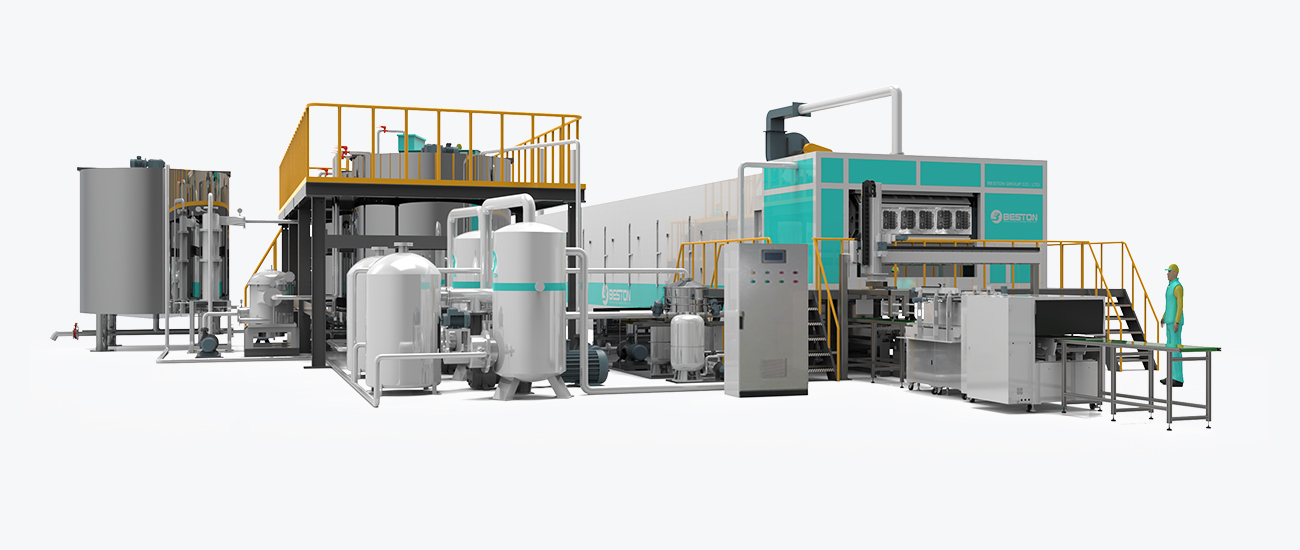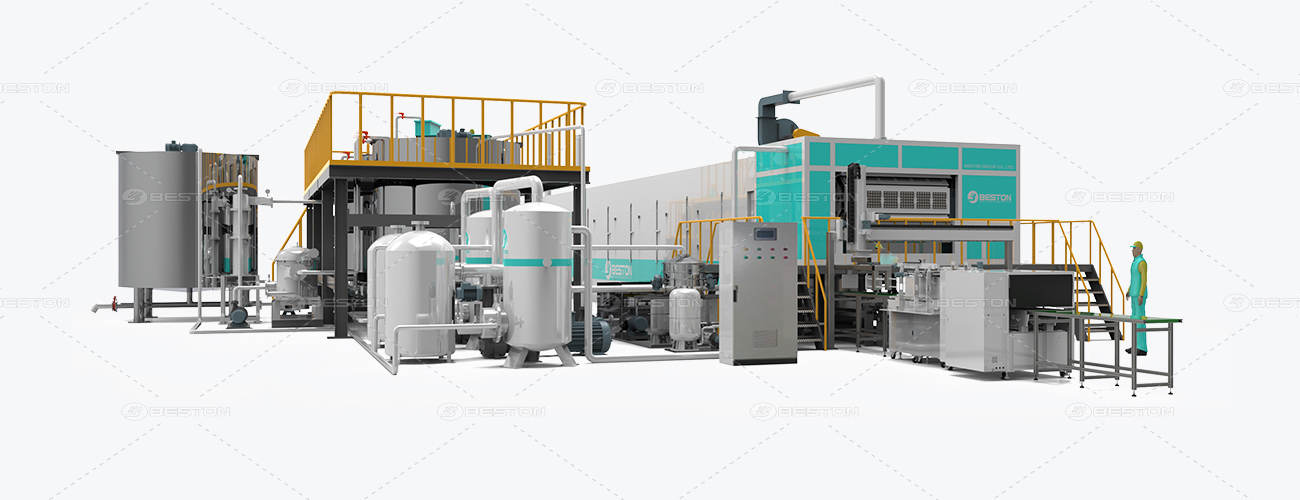In recent years, there has been a significant shift in the packaging industry towards sustainability, driven by the need to reduce environmental impact and meet consumer demand for eco-friendly alternatives. Among the many innovations in sustainable packaging, the egg box making machine stands out as an ideal solution for producing environmentally responsible packaging. This machine, which typically utilizes recycled paper pulp as a raw material, plays a pivotal role in reducing waste and minimizing reliance on plastic packaging.
The Eco-Friendly Advantages of an Egg Box Making Machine
The primary advantage of the egg box making machine is its use of recycled paper pulp to create egg cartons. This method significantly reduces the need for virgin plastic, a material known for its environmental toll. Unlike plastic, the paper used in egg cartons is biodegradable and recyclable, which means it does not contribute to long-term environmental pollution. The egg box making machine turns waste paper into high-quality, durable packaging that is both sustainable and functional.
By utilizing waste paper as the core material, the egg box making machine helps close the loop in recycling. This process reduces the amount of paper waste that would otherwise end up in landfills. Instead of discarding paper waste, industries can repurpose it into valuable packaging material, thus reducing waste and conserving natural resources. The machine also supports the broader circular economy by transforming waste into a useful product that can be recycled again.

Efficient Production Process
The egg box making machine is part of the broader pulp molding system, which also includes other machinery like the paper tray making machine and pulp moulding machine. These machines work together in a streamlined process that begins with the preparation of paper pulp. In the first step, the paper is mixed with water to create a slurry, which is then fed into the molding system of the egg box making machine. The machine uses molds to shape the slurry into egg cartons, which are then dried to ensure they retain their shape and strength.
This automated process is both efficient and cost-effective, making it an attractive option for businesses looking to produce large quantities of sustainable packaging. The integration of automation not only increases production speeds but also reduces the likelihood of human error, ensuring that each egg box is consistently high in quality. Furthermore, the use of recyclable materials in the production process helps reduce production costs in the long term, as the raw materials are inexpensive and readily available.
Versatility of the Egg Box Making Machine
One of the key factors that make the egg box making machine ideal for sustainable packaging is its versatility. While it is primarily used for manufacturing egg cartons, the technology behind the machine can be adapted for a variety of other packaging solutions. For example, the same process can be used to create paper trays for fruits, vegetables, and even electronics. This adaptability makes the egg box making machine a valuable tool for a wide range of industries seeking to replace plastic and other unsustainable packaging materials.
In addition, the egg tray maker can be customized to produce different sizes and shapes of packaging, catering to the specific needs of different products. Whether it is for fragile agricultural items or high-end electronics, the machine’s flexibility allows businesses to produce packaging that meets the exact requirements of their products, without sacrificing sustainability.
Environmental Impact and Long-Term Benefits
The environmental benefits of the pulp moulding machine extend beyond just the materials it uses. By reducing reliance on plastic and non-biodegradable packaging, the machine contributes to a reduction in carbon emissions associated with the production and disposal of these materials. The use of paper pulp, a renewable resource, helps minimize the depletion of non-renewable resources and reduces overall environmental strain.
Additionally, the biodegradable nature of the egg boxes produced by these machines ensures that they do not contribute to long-term environmental damage. In the event that the boxes are discarded, they decompose naturally and safely, unlike plastic or foam packaging, which can persist for hundreds of years.
Conclusion
The egg box making machine stands as a pivotal player in the shift toward more sustainable packaging solutions. Its ability to transform recycled paper into durable, biodegradable packaging not only reduces plastic waste but also contributes to a circular economy. By utilizing efficient production processes, offering versatility, and delivering long-term environmental benefits, the egg box making machine is an ideal choice for businesses aiming to reduce their environmental impact and adopt more sustainable practices in their packaging strategies.
